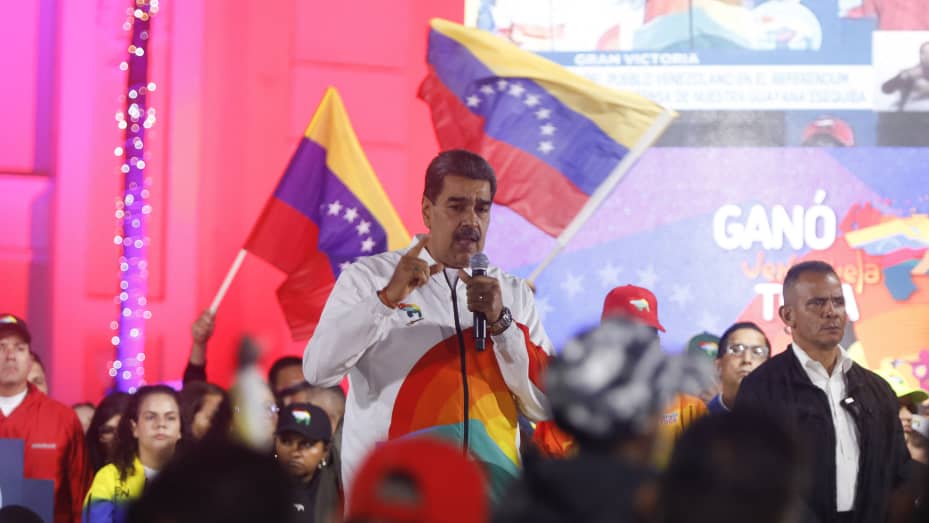Already a subscriber? Make sure to log into your account before viewing this content. You can access your account by hitting the “login” button on the top right corner. Still unable to see the content after signing in? Make sure your card on file is up-to-date.
In Venezuela, a referendum with allegedly 50% voter turnout has shown strong support for claiming the oil-rich Essequibo region, currently administered by Guyana.

The National Electoral Council president, Elvis Amoroso, announced that more than 10.4 million of the 20.7 million eligible voters participated in the vote, which resulted in a 95% “yes” vote. This referendum follows the International Court of Justice’s (ICJ) warning against Venezuela’s “annexation” of Essequibo, a territory long governed by Guyana but claimed by Venezuela for decades.

The referendum, described as a “total success” by Venezuelan President Nicolas Maduro, represents the highest turnout in a Venezuelan election. Maduro emphasized the “democratic character” of the process and the country’s commitment to reclaiming its perceived territory. Guyana’s President Mohamed Irfaan Ali reassured his citizens regarding the protection of the country’s borders.

The referendum’s questions included propositions for creating a new state in Essequibo and granting its inhabitants Venezuelan citizenship.
The vote’s implications remain uncertain, as it’s not clear how Maduro plans to act on the results. The ICJ’s recent statements by its president, Joan E Donoghue, indicated Venezuela’s intentions to gain control over Essequibo, including military measures like building an airstrip.

Essequibo, rich in minerals and key to significant oil discoveries by ExxonMobil, is central to this dispute. While Venezuela bases its claim on historical boundaries from Spanish colonial times, Guyana upholds the 1899 Paris arbitration panel’s ruling as definitive.






